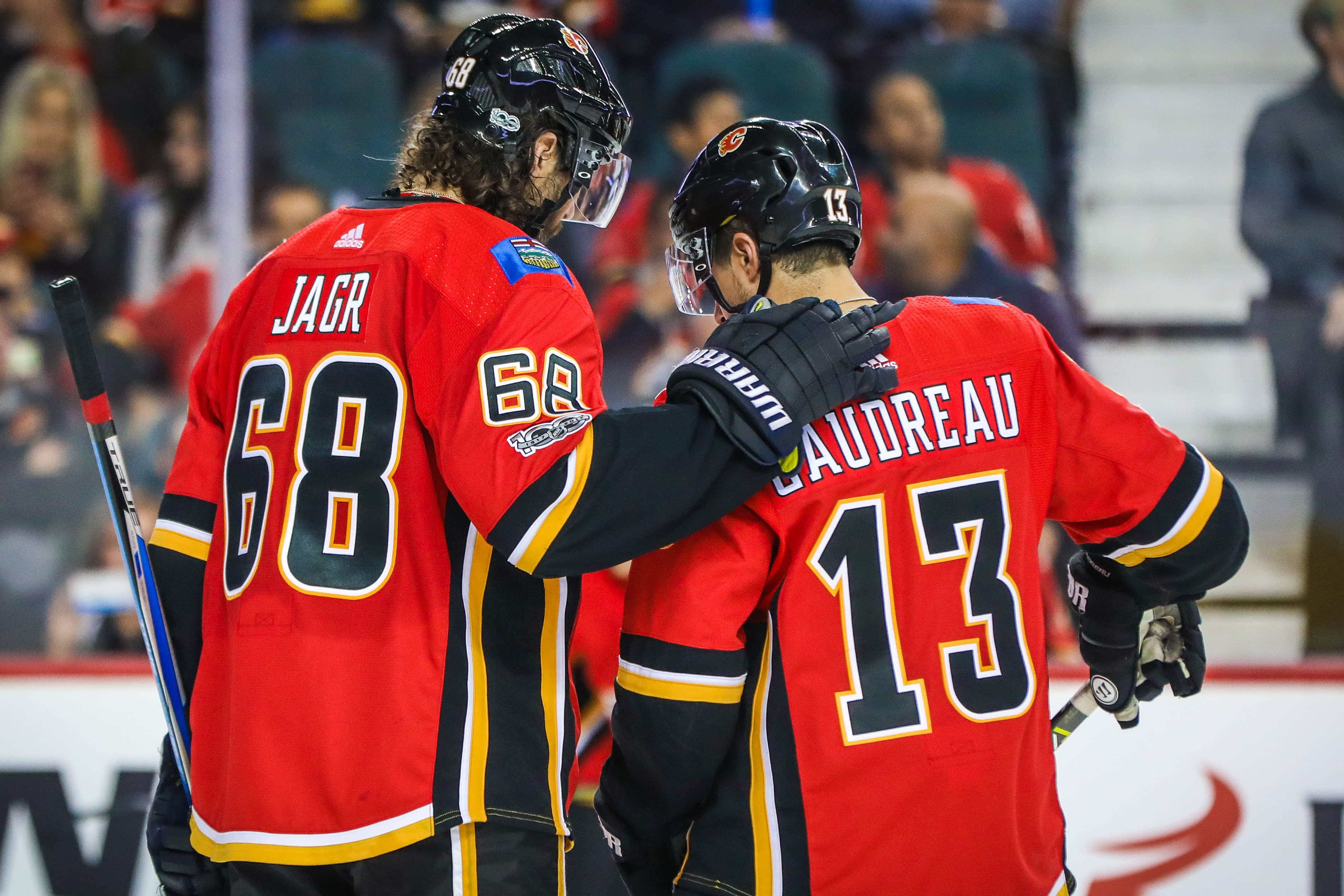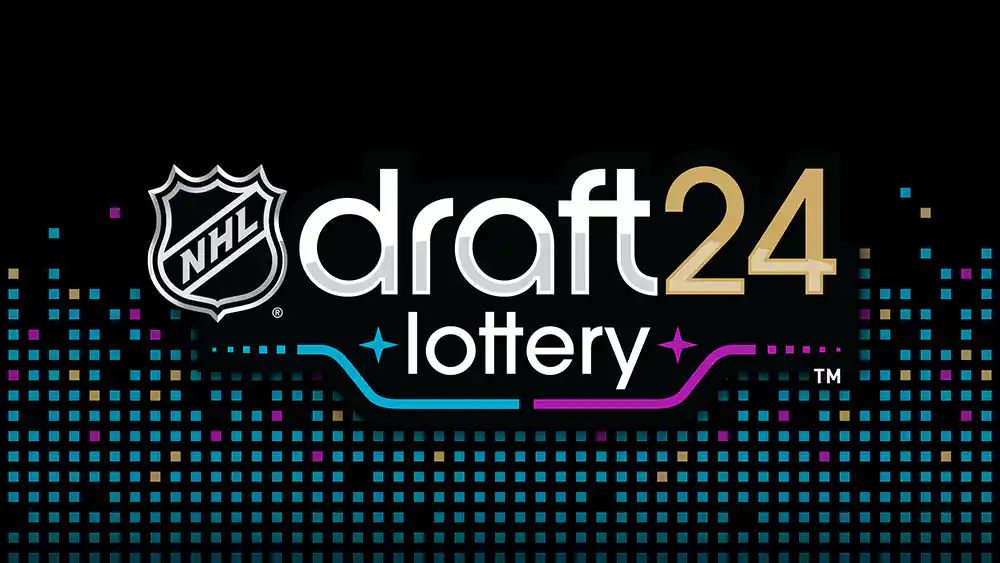Senators 6, Flames 0 post-game embers: No goals, lots of problems

By Ari Yanover
6 years agoThe Flames got off to a great start. You want to limit shots against? How about holding the opposing team to no shots until 8:34, and no even strength shots until 15:01 in the game? The Flames had an outstanding start.
But they didn’t score. And the Senators did. A lot.
All for want of a goal
It wasn’t a great game, but the final score is not an accurate reflection of how it went. I mean, ultimately, it’s the only thing that matters – but after an outing like that, you have to find whatever silver linings you can.
And the fact was, the Flames were legitimately good to start. Giving up a goal at the end of the first was unfortunate, but not insurmountable. Same for a goal at the end of the second right as the powerplay expired. They were still in it, even though the Senators had started challenging them much more towards the end of the second, and the game’s momentum appeared to have been shifted with nonstop powerplays for the Senators.
But then they allowed a goal early in the third, and the wheels were officially off.
Here’s the surprising thing for me: the Flames controlled the scoring chance battle. Their 5v5 HDCF% in the first was 66.67%, 75% in the second, and 50% in the third. You look at all situations and the only time they were negative was in the third period, when they appeared to have given up. Otherwise… they could have had this one.
But there was no immediate success. There was line mixing and matching, with little time for cohesion, and back and forth and back and forth.
The Flames dominated to start the first. They wouldn’t even let Ottawa get a single even strength shot for a quarter of the game. If they had scored then, it’s likely a different outcome. Alas. This can’t happen again.
All for want of a save
So. This is not on the goaltending, because it’s pretty difficult to win a game if you aren’t scoring any goals yourself.
But it also kind of is on the goaltending, because maybe not giving up a goal at the end of the first (that should have been stopped) gives you more inspiration. Maybe not giving up a goal at the end of the second (though that was a perfect shot) has you knowing you’ve still got a chance. Maybe not giving up a goal at the start of the third has the team in front of you recognizing that they’re only down by two and the game is still totally theirs for the taking.
Instead, it was like a waterfall.
The Flames spent so long limiting shots, only to be outshot themselves (but hey, fewer than 40!). And Mike Smith ended up posting a not-so-spectacular .773 SV%, a far cry from his first four games. Sure, there was the occasional big, flashy save; the attitude and the play to back it up were in full force at times. But the full 60 – or, uh, 47:58 – were not.
This one game isn’t going to annihilate the good will Smith has built up thus far. And it shouldn’t. This is partially on him, but it’s hard to get too mad at the goaltender who has bailed his team out for two wins and who wasn’t responsible for the shutout.
But it is a reminder that players will have bad games, and Smith certainly wasn’t immune to that.
All for want of a penalty kill
Technically, the Flames killed off five of seven penalties, but it was more like four, what with one goal being scored right as the kill expired and all.
That’s not a great percentage. But honestly, even if they played a penalty-free game, that still would have been three goals scored on them. Losing 3-0 isn’t all that much better than losing 6-0, it just helps preserve the goal differential. (I suppose one could make an argument that getting blown out is better than a close-ish loss because it highlights more flaws and provides a greater look at what to fix. Then again, probably more demoralizing. Hm.)
The second goal? End of a powerplay. The third goal? A backbreaker to start the third. Both of those were unideal. The sixth goal? Honestly, who cares at that point, they were already dead.
But a better penalty kill gives the Senators a one or a two-goal lead to work with with 19 minutes to go. Not a three-goal lead. And again: that could have been the difference.
Some of the penalties were pretty weak. That Sam Bennett slash? Really, that’s what you’re calling? Call that stuff on hands, not gentle taps on sticks. Micheal Ferland’s faceoff violation… whatever.
But then there was the truly scary one: Mikael Backlund, one of the team’s best penalty killers, taking a double minor. If anything, that’s where the game could have ended; instead, the Flames held on to take two more penalties in quick succession after killing that one and that was it. (Maybe it’s a different game if they don’t burn themselves out killing Backlund’s penalty, either.)
Mark Giordano and Michael Stone were heavily relied upon, playing over eight minutes each on the kill, which really shot Stone’s ice time up. (A little curious: Dougie Hamilton had six seconds of kill time. Matt Bartkowski had 49.) Michael Frolik had over five minutes of kill time; Matt Stajan and Troy Brouwer nearly did, too. Backlund probably would have gotten there himself if it weren’t for, you know, double minor.
Backlund also had the highest CF of any penalty killer, with three (Giordano, Stone, Frolik, and Curtis Lazar had two each).
All for want of consistent lines
Lazar played alongside Johnny Gaudreau and Sean Monahan.
… But so did Jaromir Jagr.
Lazar had a little more ice time with them (and Gaudreau in particular), but not by much. So the main takeaway from this one is that the line shuffling was pretty split.
It’s especially difficult to look at an individual corsi impact in this one because, even though they lost 6-0, their underlying numbers were pretty good from top to bottom. Lazar and Jagr both had success with Gaudreau and Monahan. They had success throughout.
This might be personal bias, but I felt Jagr was the more dangerous player with them. (I was specifically watching for Jagr through much of the game, before things turned hopeless and pointless.) Which makes sense: Jagr spent a lot of time with Aleksander Barkov and Jonathan Huberdeau over the past two seasons. He’s used to playing with high-scoring early 20-somethings. He just has to get his legs back under him. The flashes are there, though.
Not related to anything on the ice, but geez, does the Saddledome absolutely love Jagr. Jagr featured on the jumbotron? Entire place goes nuts. Jagr in the starting lineup? Everyone loses it at the announcement. Jagr gets knocked over? Crowd wants blood. Jagr takes a penalty? How dare you call that on him. Jagr gets a scoring chance? FSGDHIGODHGIDJKG.
It’s special. Sooner or later we’ll really see it pay off.
All for want of a player-specific observation
Geez, can Brodie skate.
He had such an underwhelming season last year that I’d totally forgotten about this. He became one of my favourite players back early during the rebuild because of this one shift I remember where he took the puck end-to-end, dancing through like all five Minnesota Wild skaters along the way, starting from behind his own red line and ending up with a shot, all of his own doing. It was beautiful to watch.
Brodie was also rather pinch-happy last night. Which, considering the team’s need for a goal, wasn’t a bad thing. Especially considering how quickly he can get back. And how Travis Hamonic was always there just in case. This pickup has revitalized the Flames’ number three defenceman so much, and it’s only been five games.
Brodie is a point-per-game scorer right now, and he’s still second in team scoring, and neither is likely to last. But it is just really great getting a chance to watch an early favourite of mine and remembering exactly why he was an early favourite.
Recent articles from Ari Yanover





